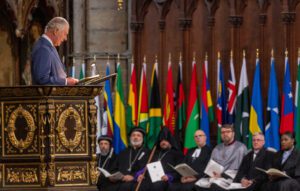2012 brings the Foundation back to the beginnings of its call for the renewal of the Commonwealth.
When the Foundation was re-launched in 2012 and given the mandate to support people’s participation in governance across the Commonwealth, the Commonwealth People’s Forum (CPF) was re-aligned to support this mandate.
In 2013 the CPF in Colombo, Sri Lanka contributed to the architecture of the Post 2015 Development Agenda and advocated primarily for gender equality and women’s empowerment as a stand-alone goal. That today is Goal 5 in the 2030 Agenda for Sustainable Development. The Malta Declaration on Governance for Resilience was the result of the conversations in CPF2015.
Even as CPF anchors itself in the prevailing development discourse, it does so by offering counter narratives, challenging dominant paradigms and giving meaningful access to voices in the margins. In Malta, CPF2015 offered the governance lens to the discourse of resilience, which until then was analysed only within an economic and environmental context.
‘CPF2018 interrogated the issues of exclusion in the Commonwealth, sessions took on injustice as experienced by people in all their diversity and tackled accountability in governance.’
It was also in Malta where the Commonwealth Heads of Government recognized the consonance of the work of the Foundation with SDG 16, the shorthand of which is Peace, Justice and Strong Institutions.
These are the building blocks of CPF2018. In 16 April 2018, the Commonwealth Foundation in partnership with the UK Government opened the doors of Queen Elizabeth II Conference Centre in London. It did so with defiant hope that renewal in and of the Commonwealth is indeed possible.
CPF2018 interrogated the issues of exclusion in the Commonwealth, sessions took on injustice as experienced by people in all their diversity and tackled accountability in governance. The forum pressed on to come to an understanding of the imperatives of a renewed Commonwealth. At the end of three days, civic voices crafted the London Declaration on Inclusive Governance for a Renewed Commonwealth with an accompanying Call to Action.
Powerful delivery of #CWpeople call to action by @NAfadzinu to Commonwealth Ministers.Accountability is extremely key for a renewed #ourCommonwealth @Commonwealth18 @commonwealthorg @BorisJohnson #CHOGM18 @KenyaGovernors @ForeignOfficeKE @commonwealthsec @vkrishnarayan pic.twitter.com/xbcper8EIe
— Allan Maleche (@MalecheAllan) April 20, 2018
The Declaration and the Call to Action argue that Commonwealth renewal is no longer an option, but an achievable imperative. Civic voices concluded:
‘We stand at the threshold of a new Commonwealth future, built on equality, diversity, a constant questioning, and interrogation of the constraints and challenges that face us and the opportunities, strengths and values that unite us as human beings with shared stories.
We will achieve this through common effort, shared experience, action with vision and imagination, and by building inclusive, participatory, responsive and accountable systems of governance that leave no-one behind.’
In these perilous times, now more than ever civic voice matters. And it is with a buoyant optimism that the Foundation will persist with its commitment to support the call for the renewal of the Commonwealth for the interests of civic voices.
More voices for a fairer world.
The CPF2018 Declaration and Call to Action cover 13 key policy areas:
- Reforming colonial-era laws
- Accessing justice
- Rights of indigenous peoples
- Women negotiating peace
- Migration
- People centred health and education
- Climate justice
- Just world order and just economies
- Digital age, one that enables but also protects the peoples of the Commonwealth
- Separation of powers
- Accountability in development
- Decentralising power
- Media accountability
Myn Garcia is Deputy Director-General of the Commonwealth Foundation.
EDITOR’S NOTE: A newsletter item which was hyperlinked to this article and circulated on 30 April 2018 incorrectly identified Myn Garcia as Director-General of the Commonwealth Foundation.








